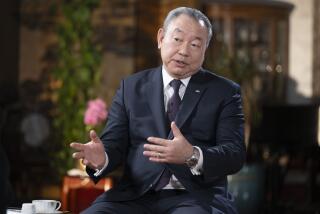Conflict Between China and Taiwan
Tom Plate’s April 9 commentary, reprinted in the April 13 China Post, contains some reasonable and timely suggestions about how to reduce the tension between China and the U.S., among them that Beijing officials should learn how the U.S. Congress works and vice versa, and members of Congress have more contact with and try to better understand China.
In the same article, however, Plate also discusses the present conflict between China and Taiwan and uses language and insinuation which, I’m afraid, could seriously misinform readers.
Plate writes that “the United States and the United Nations have agreed that there is only one China and that Beijing is its official government” and that “Beijing is only reflecting current international law when it asserts its rights over Taiwan.” These statements are very loose, at best; strictly speaking they are downright false. The United States’ and the United Nations’ views on China are definitely not the same. For the U.N., Taiwan as an independent political entity simply does not exist.
The U.S. government has a “one China” policy, but this “one China” is never defined as the PRC; in the eyes of the U.S. government this “one China” seems to be China as one nation spread over mainland China and Taiwan. Then the U.S. has a Taiwan Relations Act, clearly recognizing Taiwan as an entity separate from the PRC, although the U.S. relations with Taiwan are defined as “not official.”
Plate’s most misleading statements, however, are about [Taiwan] President Lee Teng-hui. He compares Lee to a “Confederate president.” No secession in any sense has taken place in China. The 1949 civil war resulted in the establishment of the PRC on the mainland, while the former national government retreated to Taiwan. China as a whole remained the same one nation. China as a nation was not split; it was the political power that got split. The leaders in Beijing know clearly that Taiwan has never been a part of the PRC; they call it a “province to be liberated.”
Beijing officials would like the world to think that they are fighting a rebellion--although they themselves know very well that that is not the case. The fact is that Beijing wants now to finish the 1949 civil war and bring Taiwan under its control.
To say this is not sloganeering or “provoking Beijing.” This is just trying to establish the truth.
COLMAN BERNATH
Taipei
More to Read
Sign up for Essential California
The most important California stories and recommendations in your inbox every morning.
You may occasionally receive promotional content from the Los Angeles Times.










